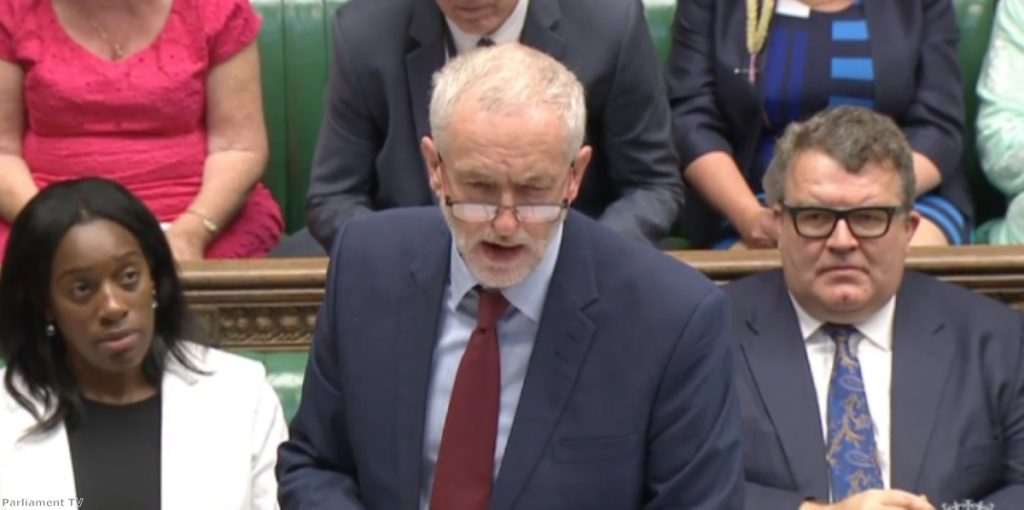Jeremy Corbyn's performance at prime minister's questions today was unquestionably his best yet.
The Labour leader was highly effective at picking apart the prime minister's deeply flawed and evidence-free case for resurrecting the grammar school system.
Asked to list educational experts who backed her plans, Theresa May was unable to name a single one.
Instead, she resorted to bland generalisations and cheap jibes, telling Corbyn that "while he believes in equality of outcome I believe in equality of opportunity. He believes in levelling down, we believe in levelling up."


While this may have looked good in writing, it sounded insufferably banal once it emerged from the prime minister's lips. And on all the specifics of her plans, the prime minister was left wanting, unable to provide a single piece of evidence supporting the return of selection in schools.
Corbyn by contrast, was able to marshall a whole series of effective arguments against grammar schools, both from official statistics, education experts and even the former prime minister David Cameron:
"Let me quote her a critic of grammar schools," he began.
"'There is a kind of hopelessness about the demand to bring back grammars. An assumption that this country will only be ever able to offer a decent education to a select few… I want the Conservative party to rise above that.' Not my words, those of the former right honourable member for Witney."
He pointed out that in Kent, which still has a grammar school system, 27% of the pupils on free school meals get five good GCSEs compared with 45% in London.
He then added: "We're all for spreading good practice but why does the prime minister want to expand a system which can only let children down."
The Labour leader went on to ask pertinent questions about May's mooted 'feeder schools' and the requirements of existing grammar schools to take in more disadvantaged children, something the figures show they currently fail to do. On all these specific points, the prime minister either had no answer, or deliberately chose not to give one. Instead she resorted to pointing out that both she and Corbyn had attended grammars, while suggesting that he wanted to pull the ladder up. "It's not about pulling up ladders," Corbyn replied. "It's about providing a ladder for every child."
Whereas in the past Corbyn has often seemed heavy-footed and scripted at PMQs, today he was quick to respond both to May's fluffed jokes, and even her attempt to distract him with comments about the unemployment figures.
Praise from former shadow education secretary. Grammar schools uniting Labour. https://t.co/YkkOq5WwT0
— George Eaton (@georgeeaton) September 14, 2016
Instead he stuck relentlessly to his case and presented a clear and compelling case against the return of grammar schools which prompted rare signs of appreciation, even from the critics on his own benches.
In the short time it has been operating, May's government has already shown worrying signs of arrogance, prompted in part by the belief that it faces no serious opposition in Parliament.
Until now, that belief seemed wholly justified. However, Corbyn's performance today – and the reaction it received from his own MPs – suggests this arrogance could be misplaced, at least when it comes to grammar schools.
In a parliamentary debate on the issue earlier this week, a dozen Conservative MPs stood up to voice their opposition to the plans. There are many more in the party privately opposed to the return of selection.
But while too often under Corbyn the only real opposition to the government has seemed to emerge from May's own benches, his performance today gives at least a glimmer of hope that we could see a return to some proper parliamentary opposition on the horizon.









